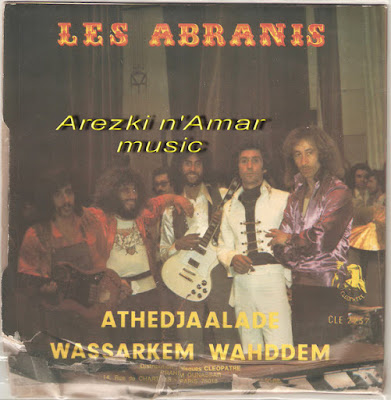Watch it here.
This is courtesy the FaceBook page (which I hope you can access) of the Archives Numérique du Cinéma Algérien, who say about it:
"Alors voici un document extrêmement rare et inédit sur internet: il s'agit d'un large extrait d'un
scopitone de Cheikha Remitti tourné très probablement au début des
années 1970 et dans lequel elle interprète le morceau "Aïn Kahla".
Nous sommes très heureux de partager avec vous ce document qui nous parait tout à fait exceptionnel.
Si
vous reconnaissez le lieu de tournage n'hésitez pas à nous l'indiquer.
S'agit-il de l'ouest algérien, d'un village du nord marocain, difficile à
dire...
MAJ 22h08 : le film aurait été tourné à Debdou à l'est du Maroc, un grand merci à Nehams Ta pour la recherche
Un
grand merci à la cinémathèque de Saint-Etienne de nous avoir permis de
numériser ce scopitone au format super 8mm issu de notre collection."
For those of you who don't know French, the key points: it's an extract of a Cheikh Remitti scopitone, probably shot in the beginning of the 1970s, a segment of her song "Aïn Kahla." Filmed in the town of Debdou in eastern Morocco. (My guess is that the Algerian government would not have allowed, or made it very difficult, to film a Scopitone there.)







